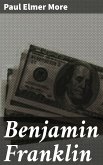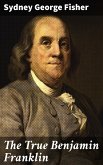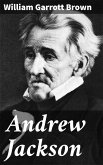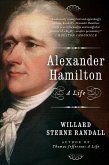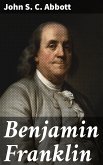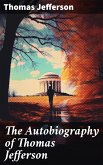In "Benjamin Franklin," Paul Elmer More presents a profound and meticulous exploration of one of America's most illustrious Founding Fathers. More's literary style is characterized by a graceful prose that seamlessly integrates biographical narrative with critical analysis, situating Franklin within the dynamic political, social, and intellectual currents of the 18th century. The book delves into Franklin's multifaceted identity as a statesman, philosopher, and inventor, while also considering the broader Enlightenment context that shaped his thinking and endeavors, making it a pivotal contribution to American literary and historical scholarship. Paul Elmer More, a prominent figure in the early 20th-century intellectual landscape, was deeply influenced by his studies in classical literature and philosophy. His academic background and engagement with the ethical dimensions of human experience drove him to dissect Franklin's legacy with both earnestness and admiration. More's life-long commitment to elucidating complex moral issues through accessible language reflects in his portrayal of Franklin not just as a historical figure, but as a timeless symbol of American ingenuity and diplomacy. This book is highly recommended for readers interested in American history, Enlightenment thought, or biographical studies. More's insightful interpretation enriches our understanding of Franklin's contributions and enduring influence, making it an essential read for scholars and casual readers alike who seek to grasp the intricacies of the American ethos.
Dieser Download kann aus rechtlichen Gründen nur mit Rechnungsadresse in A, B, BG, CY, CZ, D, DK, EW, E, FIN, F, GR, H, IRL, I, LT, L, LR, M, NL, PL, P, R, S, SLO, SK ausgeliefert werden.



